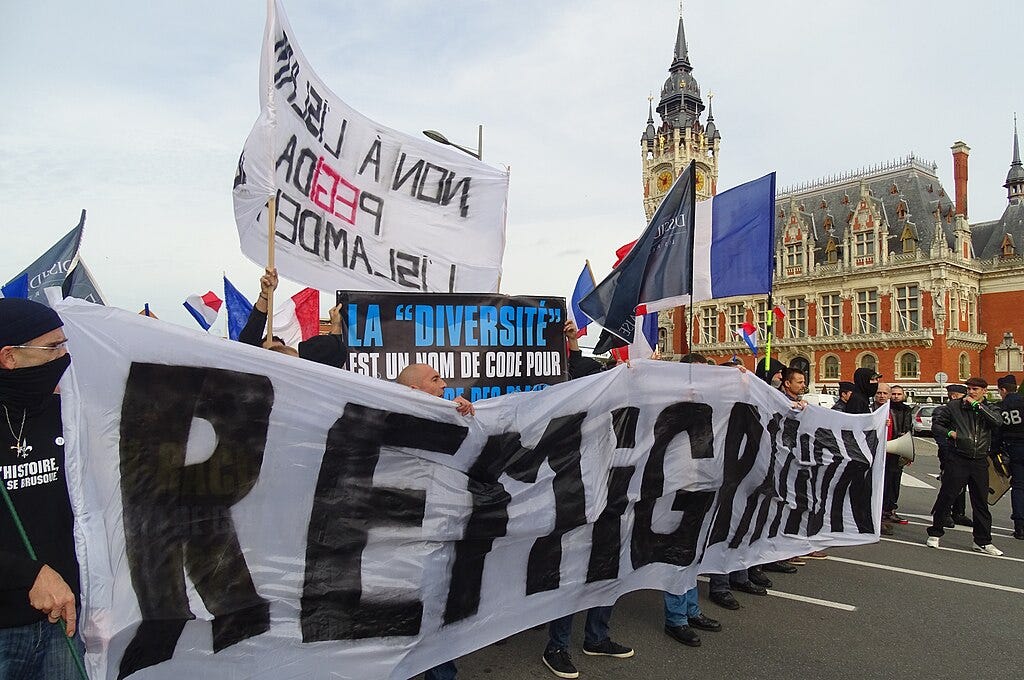The Surge of the Right: Anti-Immigration Politics Across Europe
From Berlin to Lisbon, populists ride discontent over migration, testing the EU’s liberal red lines on asylum and integration.
Across Europe, populist and right-wing movements are riding a new wave of support. From Berlin to Lisbon, immigration has emerged as the defining fault line. In Britain, anti-immigration protests have grown more frequent and more heated. Germany, once a bastion of post-war liberalism, has gone so far as to classify the far-right Alternative für Deutschland (AfD) as an extremist movement. Portugal’s Chega party, once a fringe presence, now commands a solid bloc in parliament. And in Italy, Prime Minister Giorgia Meloni treads a careful path—balancing nationalist rhetoric with pragmatic labor migration policies.
Image: A banner advocating "remigration" during an anti-immigration protest in Calais, France © Jérémy-Günther-Heinz Jähnick, CC-by-GFDL 1.2
This is not Europe’s first populist moment. The continent has cycled through waves of anti-immigrant sentiment before, from the backlash against Turkish workers in 1970s Germany to the refugee crisis of 2015. But today’s surge feels different because it coincides with a broader questioning of Europe’s liberal order. Stagnant economies, overstretched welfare systems, and fears of cultural erosion are fueling a sense that mainstream politics no longer defends “the people.”
For Brussels, this trend is troubling. The European Union was built on the premise that national chauvinism could be tamed through integration. But as nationalist movements inch closer to power, they push the boundaries of that consensus. Liberal red lines—on asylum, human rights, and the rule of law—are under pressure.
Our Take: Europe’s history shows that when nationalism moves from the fringes to the mainstream, the center can unravel quickly. The thin red line lies in whether liberal democracies can absorb and channel discontent without compromising their foundational principles.

